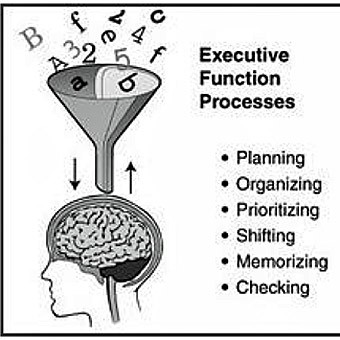Executive Function Skills: An Essential Aspect of Leadership
By On
 Whether you are in a leadership position in business, medicine, law, or anything else, you must confront the challenges of “Minding the store” and “Running the ship.” Your capacity to properly utilize executive function—as well as your broader attention skills—will be critical to your successes.
Whether you are in a leadership position in business, medicine, law, or anything else, you must confront the challenges of “Minding the store” and “Running the ship.” Your capacity to properly utilize executive function—as well as your broader attention skills—will be critical to your successes.
Powdr Corp is one of the biggest ski resort operators in the United States. In 2014, Powdr Corp mistakenly failed to renew their lease on Park City Mountain Resort in Park City, Utah. Because of this simple—but costly—oversight, Powdr Corp lost their lease. Was this error due to poor executive function? Was it a mistake of memory, of planning and prioritization, of distraction management? (Read more here)
Your executive functions help you to set goals, devises strategies, and integrates actions. The term “Executive Functioning” refers to a set of mental skills dedicated to managing your attention, as well as integrating your attention with other critical thinking skills. These skills affect your memory, your impulse control, your emotional regulation, your organization and planning, your organizing and prioritization skills, your problem solving, your time awareness, and your overall mental flexibility.
Many people in leadership positions have been promoted because of their technical skills, and because of their work in structured settings with organization-specific policies and procedures. However, once this leadership position has actually been achieved, leaders often find that it isn’t their technical knowledge that’s being challenged: it’s their attention and organizational skills. Their roles involve broader and more complex reliance on executive functions.
In a leadership position, you will probably need to continue completing technical tasks. But you will also face many more distractions, interruptions, and the need to quickly shift focus between wildly different tasks.
You must also manage your personal weaknesses when it comes to attention management, time management, organization, and the self-management of thoughts and behavior.
Attention is not a single, isolated action. It involves a number of tasks, including:
- Activating attention (How is your attention triggered?)
- Sustaining attention (How do you maintain your attention over the span of a project?)
- Switching focus from one thing to another (How do you balance attention between different subjects or tasks?)
- Screening out irrelevant stimuli (How do you ignore possible distractions or interruptions?)
In your leadership position, how are you performing in regards to planning, prioritizing, starting and  completing tasks, and other executive functions? Here are statements that reflect effective executive function. How many of these statement apply to your actions from the past weeks or months?
completing tasks, and other executive functions? Here are statements that reflect effective executive function. How many of these statement apply to your actions from the past weeks or months?
- I plan time sequences to complete tasks, and stick to the schedule.
- I brainstorm and prioritize tasks, both long-term and short-term.
- I’m organized: I can find my papers easily, I rarely schedule two meetings at the same time, and I rarely lose items such as my keys, money, wallet, or mobile phone.
- Time management is not a problem since I’m rarely late for meetings, and I routinely estimate and complete tasks on time.
- I’m flexible: that is, I can shift my attention or perspective when new situations arise or when new information is available.
- I am not impulsive. I stop and think before making decisions and check my work for completeness and accuracy.
- I manage my emotions, and I am not overly critical when giving or receiving feedback about the performance of others, or of myself.
- I pay attention to the important, as well as the mundane or tedious, tasks involved in my position.
- I follow multi-number directions, remember names and faces, and rarely feel absent-minded.
- I muster my energy and persistence to work on long-term goals, even in the face of challenges.
If fewer than six of these sound like statements you would make, you may want to explore this area. Individuals vary in their capacity to complete one—or several—aspects of attention, as well as broader executive function. For example, you might put off starting a task, but once you’re involved, you may sustain your attention until the task has been completed.
Someone else may start a task immediately, but be unable to sustain their attention; or, they may be incapable of effectively switching their attention from task to task. Still others may suffer from mental overload, resulting in overwhelming—and paralyzing—anxiety. Think about which pattern you follow, and think about how you can better manage your performance and productivity.
Your leadership position is greatly strengthened the most you embrace honing and mastering executive functions. Once you identify your patterns and come up with solutions to strengthen where needed you’ll empower yourself to new levels of professional prowess that will support you and your career long-term.
*******************************
Dr. Markel Offers Value-Driven Keynotes and Breakouts.
Download Dr. Markel’s Speaker One Sheet: GeriMarkelCorporateOneSheet-Print
Book Dr. Markel to Speak at Your Next Event? Connect Today!